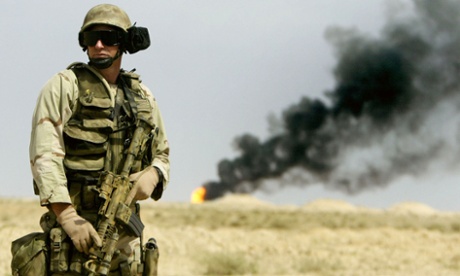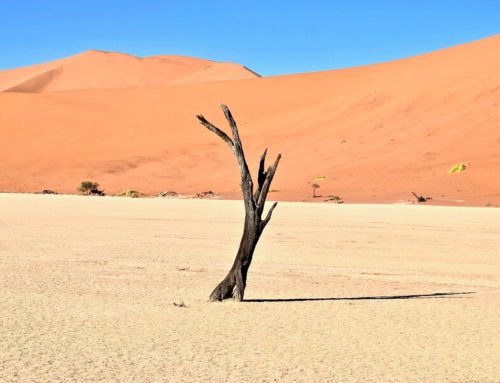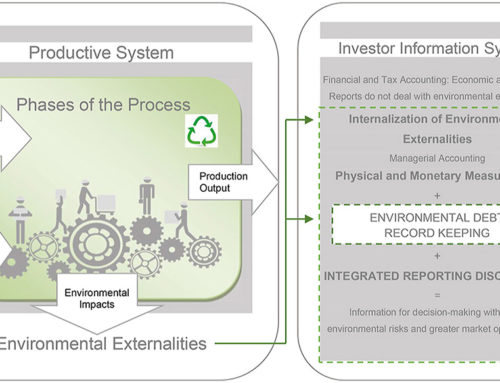First published in the Guardian on June 4th, 2014.
Why doesn’t anyone do anything about the situation in Ukraine?
One reason is that Russia supplies one third of the European Union’s oil and gas. The EU, in turn, represents 20% of the world’s economy, and any precipitous rise in the energy prices they pay is a very scary proposition.
In other words, oil and gas are both the fueling impetus for Vladimir Putin’s current forays and the reason for subsequent global inaction.
Russia is hardly alone. On the other side of Asia, China is risking a hot war with Vietnam in order to plant an oil rig in disputed waters. No nations have come to Vietnam’s side. Meanwhile, Russia and China have just signed a $400bn deal for 30 years of natural gas supply and demand. This alliance creates an economic and defensive bloc that could limit the rest of the world’s move towards safe energy development.
China’s $400bn bet on natural gas added to its central role as the world’s top manufacturer and primary emerging market, create a conflict. If the world chooses to place a price on carbon, which is desperately needed, China and Russia now have an alliance against other economies that might want to incentivize safer renewable energies.
Some of the world’s great oil reserves are on land governed by repressive regimes and dictators, including the House of Saud, Vladimir Putin, Sudanese warlords and Mahmoud Ahmadinejad. The pipelines and ports to transport this oil go through lands of every geo-political leaning, from Canada, whose tar sands aim to serve the US, to Kazakhstan, whose pipeline to China is now being expanded.
Oil and gas wars (hot, cold and economic) will only intensify as at least six different nations, including Russia, lay claim to the Arctic oil reserves. Now that climate change is creating traversable Arctic waters and oil companies are negotiating for deep water drilling there, the likelihood of armed conflict has caused US Defense Secretary Hagel to create an Arctic Defense Strategy.
The companies that profit from extracting and selling fossil fuels have terrible environmental and safety records, with a long record of disasters that include Chevron, fined billions of dollars by an Ecuador court for pollution of the Amazon, the Tennessee Valley Authority’s coal ash spill in Tennessee, natural gas companies found to have contaminated the waters around the Marcellus Shale in Pennsylvania, BP’s negligence in the Gulf of Mexico and more.
Some energy companies, especially in the US, have financed a global disinformation campaign regarding climate change and greenhouse gases that has slowed the wheels of real progress towards energy independence. Energy businesses that refuse to acknowledge their direct and indirect impact on climate change are compromising national – actually, global – security.
But we are full accomplices in this conspiracy of fools. Energy companies and their geo-political sponsors are only as powerful as we, their customers, allow them to be. We demand cheap natural resources and presume that we are entitled to cheap energy. Despite knowing better, we believe that we deserve to live with the convenience of kings (instant food, instant transport, instant delivery, instant stuff) at insanely cheap prices. And every day, advertisements confirm our sense of entitlement.
This notion of our own entitlement to cheap consumption is the fundamental fallacy of 21st century commerce. It has given too much power to tyrants, too much power to corrupt politicians, and too much power to business people of bad faith. It is robbing our children of a livable world, politically and environmentally.
It’s far too high a price.
It’s hard to overestimate the impact of our fossil fuel consumption on the environment. Oil runoff from our consumption represents a greater percentage of marine pollution than transport and extraction combined, and energy from our buildings causes about 35% of North American greenhouse gas emissions.
Just as families might skip movies and dinners out to save for college, each of us can change our habits for the sake of those we love most. We can use less energy and fewer private cars, eat less meat, choose products that use dramatically less – or better, no – plastic (an oil derivative), demand that politicians and business people account for the costs of environmental damage, and accept the limitations of the carbon-constrained world we will live in for the foreseeable future.
If we do not make this transition, global instability, food and water shortages, mass migrations, hot wars and energy disruptions are certain. But despite what will surely be some extremely hard transitions, a new economic framework will yield resilient businesses, healthier citizens and safer nations.
Most importantly, we must incentivize every extant and future energy company, including today’s behemoths, to spend their extraordinary technological prowess, marketing genius, deep understanding of impossibly complex systems and money on finding our way out of this mess. I have met with senior executives in the oil industry who genuinely desire radical change. We must help them come out of the closet and lead their companies in a new direction.
When we talk about energy independence bolstering national security, here’s what it looks like: much more decentralized, clean energy sources – like solar and wind power – connected by a network of microgrids; fast, frequent and convenient mass transit and private transportation fueled by clean electricity; disposable goods replaced by well-made, well-sourced and well-manufactured goods that last; diets and agricultural practices that respect nature’s limitations as well as its bounty; an economy that reflects the environmental impact of every financial transaction; and cleaner air and water as a result of all of the above.
This is what it will take to achieve real national security. It’s the moonshot for the next decade and the Marshall Plan for restructuring the world and its economy.





